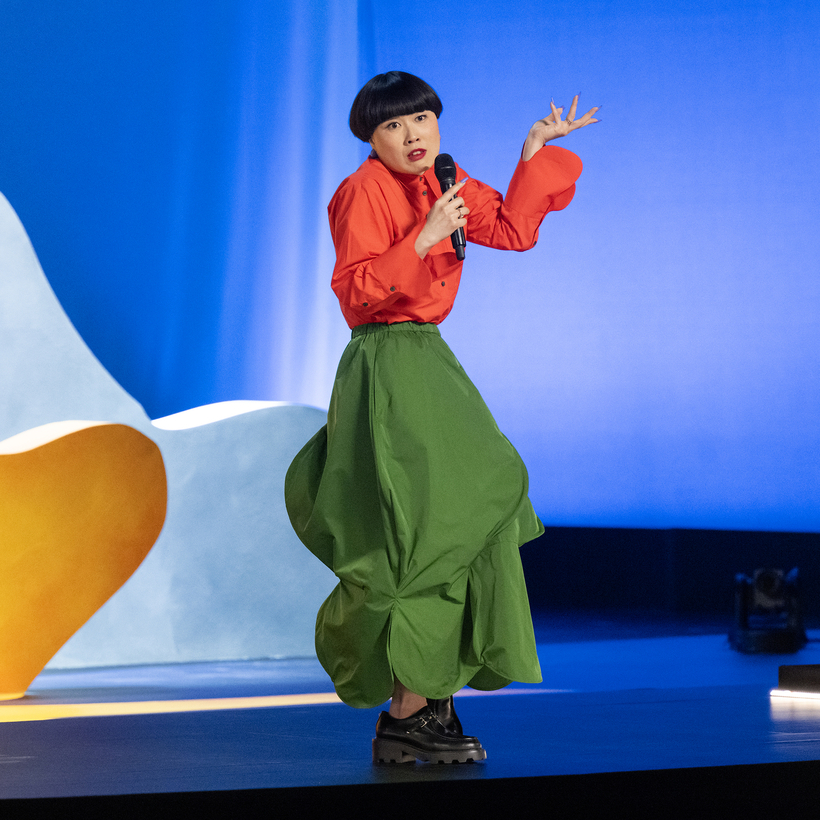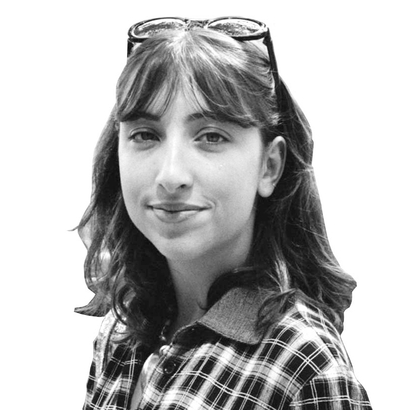Atsuko Okatsuka has one million Instagram followers. She’s also the second Asian-American woman ever to land an HBO comedy special (the first being Margaret Cho, in 1994) and frequently goes viral on TikTok for dancing in supermarkets with her 91-year-old grandma or making jokes about her bowl haircut. But outside of her professional success, the 37-year-old says she’s still not quite sure how to be an adult. She doesn’t do the dishes. She doesn’t clean her apartment. “I asked my husband the other day how to turn on the washing machine,” she admits in her new comedy special, now out on Hulu.
Her fans affectionately call her “Mother.” But, as she listened to friends complain about husbands who never helped around the house, she realized a more apt nickname would be “Father.”


